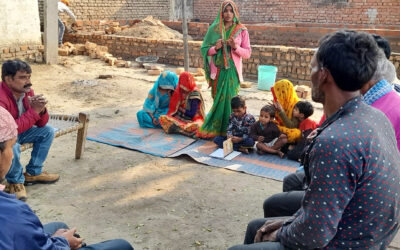Here’s a news link about a part of the world that Free the Slaves is very active in: Uttar Pradesh, India.
Uttar Pradesh, the most populous state in India, has high rates of generational slavery. Entire villages have been trapped in debt bondage for generations. With our local partners, Free the Slaves has instituted holistic programs that empower these communities to stand up to their slave masters, and demand freedom. (Learn more about FTS’ Free a Village Build a Movement Campaign here.)
In India, slavery is outlawed, but many people in debt bondage—who are often on the lowest rung of Indian society—are unaware of their rights, or without the resources and social support to come out of enslavement. A story broke last week that sheds light on the social pressure that keep this population vulnerable.
Read how one village in Bahari, India stook up to their slave masters—and won!
The BBC has a feature report on a massive scandal, in which local government officials in Uttar Pradesh systematically stole food from “citizens who are right at the bottom of the economic ladder”—the very people most vulnerable to enslavement.
Via the BBC:
Officials say massive quantities of food gran and fuel, meant to be distributed through the public distribution system or to be given to the poor under welfare schemes like food-for-work and school meals for poor children, have been stolen over the eyars and sold on the open market.
This is being investigated by India’s federal police and there are countless pages of court documents setting out the extent of the deception.
The scale is immense. It involves thousands of officials from top-level bureaucrats to middle-level officers to ground-level workers. It also involves thousands of transporters, village council leaders an fair-price shop owners.
It stretches across 54 of the state’s 71 districts, and investigators say the food is carried out of the state and sometimes even beyond Indian borders to Bangladesh and Nepal.
Thanks, Doruntine Kosumi, for the tip!

